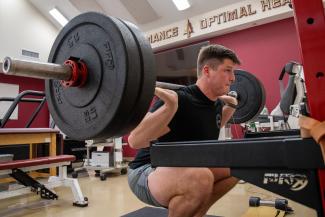Maximizing human potential
The FSU Anne Spencer Daves College of Education, Health, and Human Sciences offers a unique combination of world-class academics and a close-knit, student-focused community for an exceptional educational experience.
Anne's College is home to 12 undergraduate degree programs, 12 master's programs, four specialist degrees, and 12 doctoral degrees across six departments. Search for what interests you and see how we can help unlock your potential.


Ranked the best education-related college in Florida, Anne's College is home to six departments spanning a variety of subjects. From teacher education and sport psychology to exercise physiology and food science, students gain the skills they need for rewarding careers in some of the most important industries around.

Anne's College is home to change makers and future leaders learning from expert faculty who care about your journey.

The faculty here are genuinely committed to student success, generating opportunities to participate in meaningful research, collaborate with experts from across the globe, present at conferences, and publish in respected academic journals.